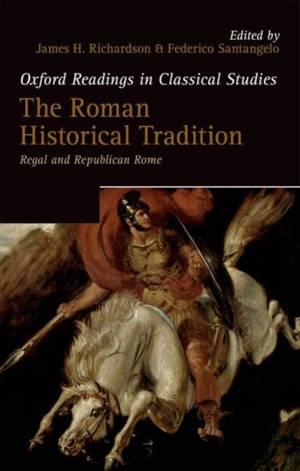
- Afhalen na 1 uur in een winkel met voorraad
- Gratis thuislevering in België vanaf € 30
- Ruim aanbod met 7 miljoen producten
- Afhalen na 1 uur in een winkel met voorraad
- Gratis thuislevering in België vanaf € 30
- Ruim aanbod met 7 miljoen producten
Zoeken
The Roman Historical Tradition
Regal and Republican Rome
€ 94,95
+ 189 punten
Omschrijving
The study of Regal and Republican Rome presents a difficult and yet exciting challenge. The extant evidence, which for the most part is literary, is late, sparse, and difficult, and the value of it has long been a subject of intense and sometimes heated scholarly discussion. This volume provides students with an introduction to a range of important problems in the study of ancient Rome during the Regal and Republican periods in one accessible collection, bringing together a diverse range of influential papers. Of particular importance is the question of the value of the historiographical evidence (i.e. what the Romans themselves wrote about their past). By juxtaposing different and sometimes incompatible reactions to the evidence, the collection aims to challenge its readers and invite them to join the debate, and to assess the ancient evidence and modern interpretations of it for themselves.
Specificaties
Betrokkenen
- Uitgeverij:
Inhoud
- Aantal bladzijden:
- 384
- Taal:
- Engels
- Reeks:
Eigenschappen
- Productcode (EAN):
- 9780199657858
- Verschijningsdatum:
- 30/09/2014
- Uitvoering:
- Paperback
- Formaat:
- Trade paperback (VS)
- Afmetingen:
- 216 mm x 137 mm
- Gewicht:
- 476 g

Alleen bij Standaard Boekhandel
+ 189 punten op je klantenkaart van Standaard Boekhandel
Beoordelingen
We publiceren alleen reviews die voldoen aan de voorwaarden voor reviews. Bekijk onze voorwaarden voor reviews.










